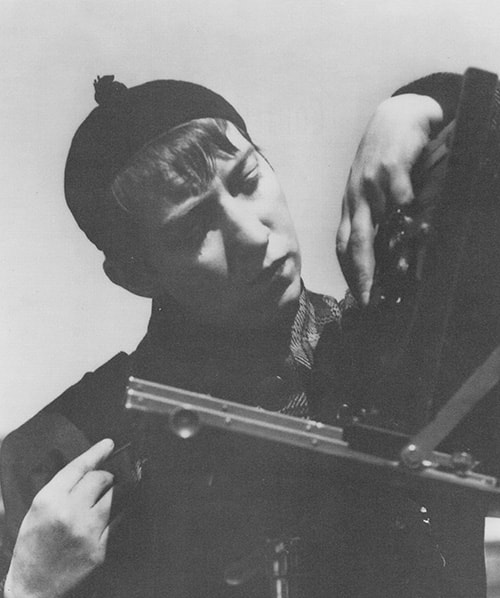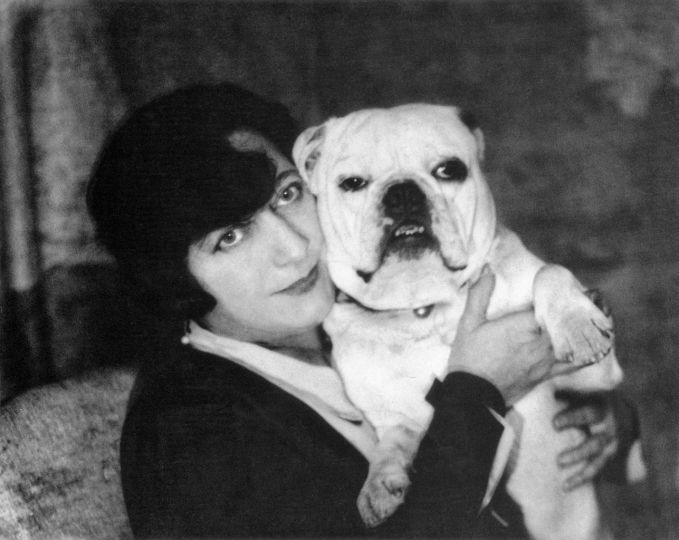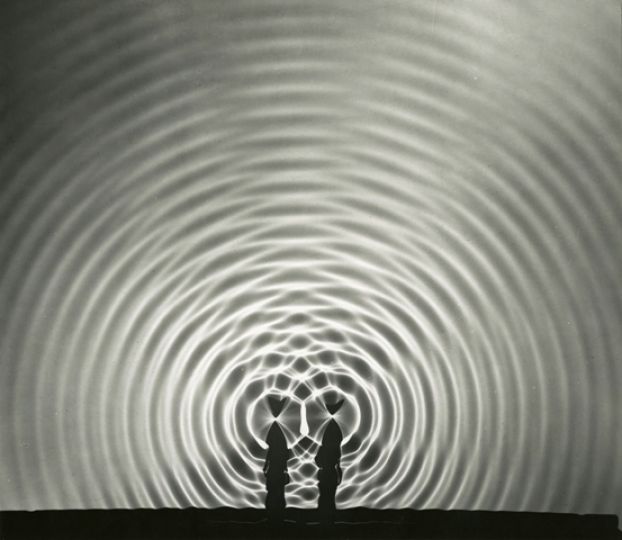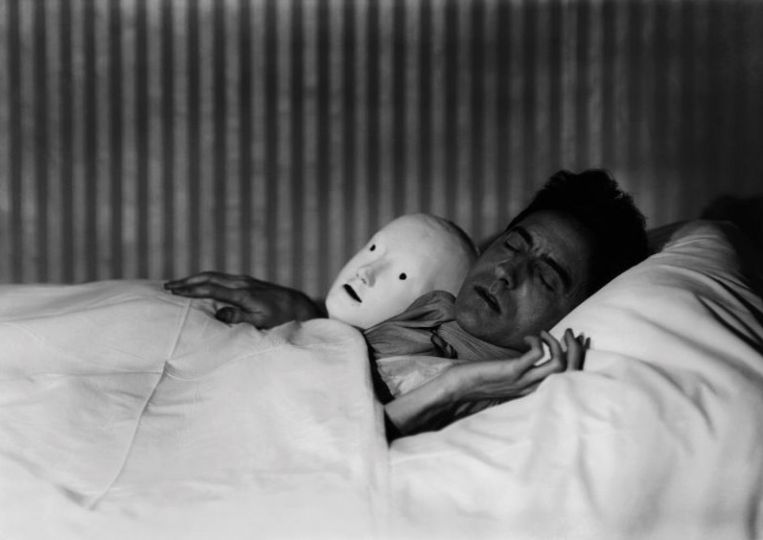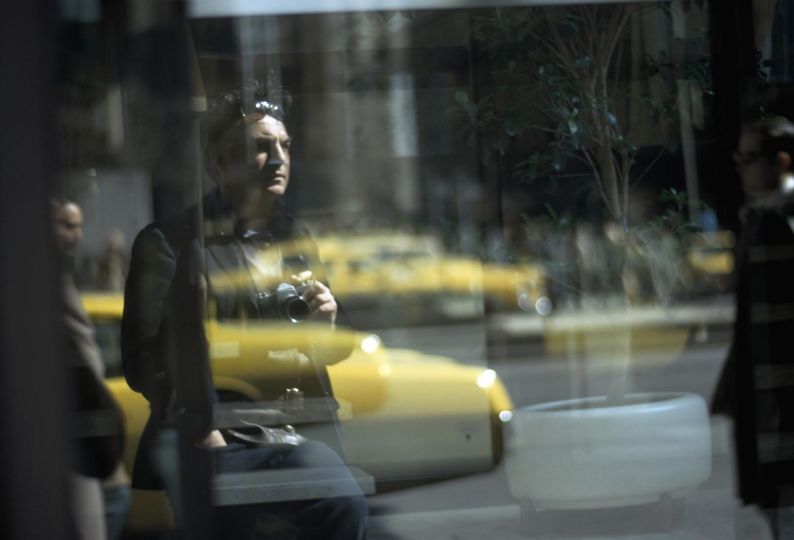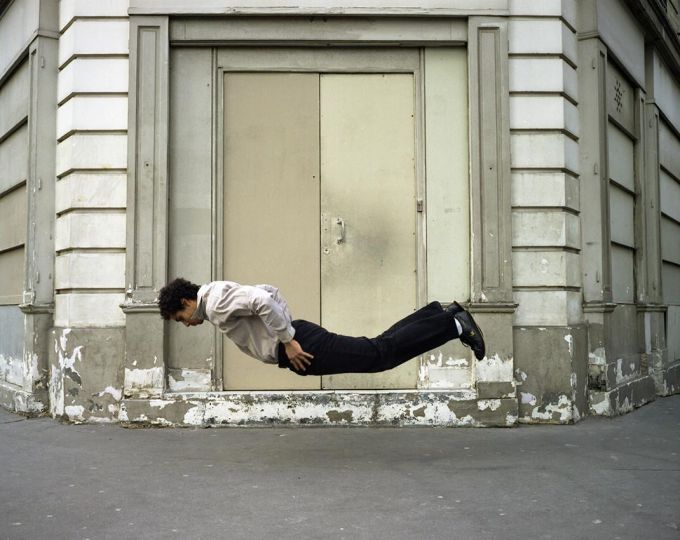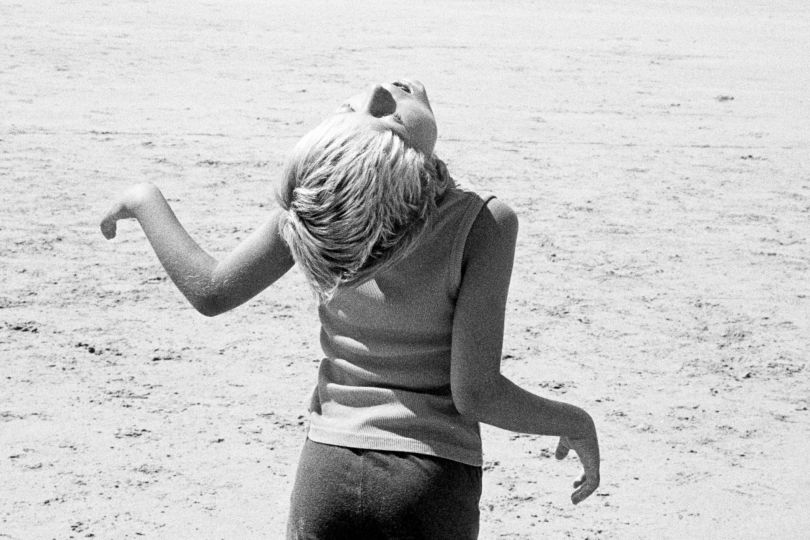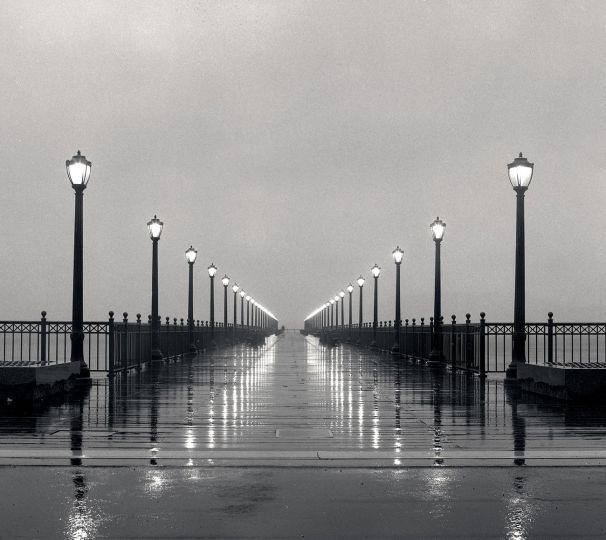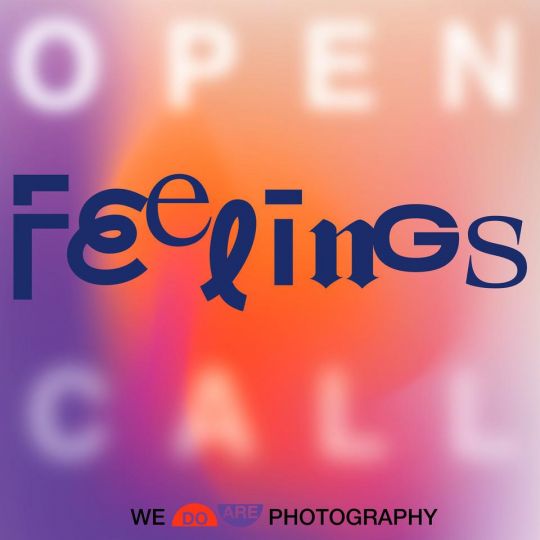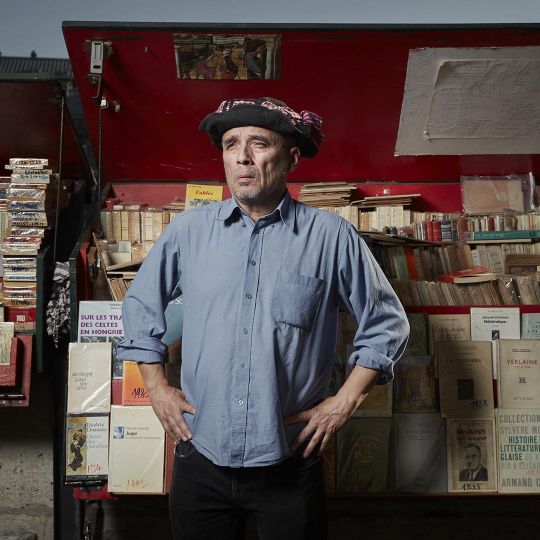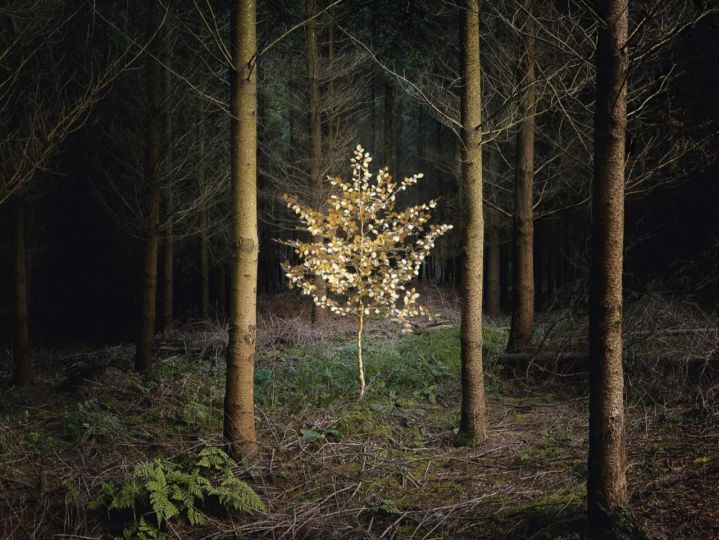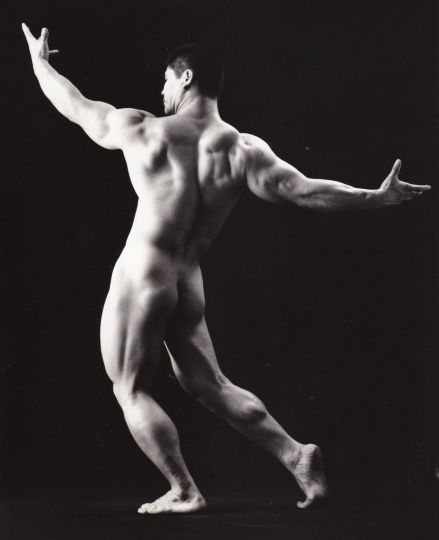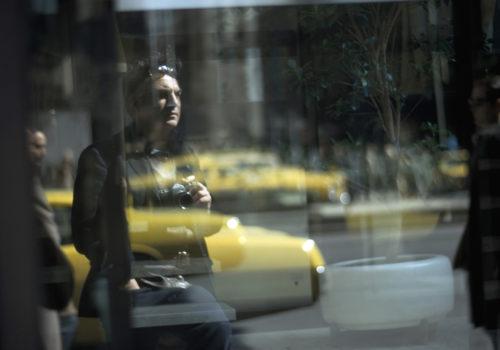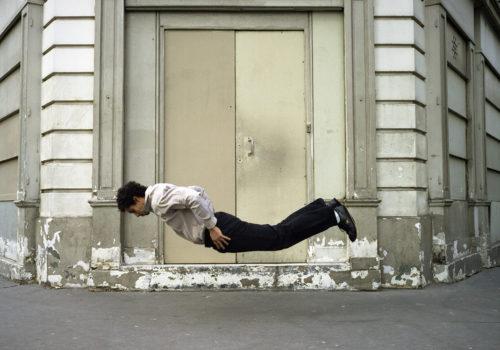Berenice Abbott (1898-1991) was born in Springfield, Ohio and attended Ohio State University. In 1918 she moved to New York and then Paris in 1923 where she was introduced to Man Ray, who hired her to be his photography assistant. Despite having no experience in photography, Abbott soon started to produce her own work, eventually opening a studio of her own. In 1926, Abbott had her first solo show, featuring dynamic portraits of the artistic and literary avant-garde.
Abbott had first encountered the work of Eugène Atget through Man Ray in 1925. Though Atget had been documenting Paris for three decades, he was long forgotten by the public by the time they became friends. The only known portraits of Atget were made by Abbott shortly before his death in 1927. She purchased more than 5000 negatives, glass slides, and prints of his work, returning to New York with the extensive archive she had amassed. She was fiercely dedicated to preserving Atget’s legacy over the next forty years. Abbott’s collection was ultimately acquired by the Museum of Modern Art in 1968.
Upon returning to the U.S. Abbott took on commercial assignments and taught photography at the New School for Social Research. She dedicated herself to documenting New York with the methodical vigor and passion Atget had previously given to Paris, shooting its streets, buildings, parks—and of course, its people. With the support of the WPA Federal Art Project from 1935 to 1939, she created the seminal the body of work, Changing New York, an extensive socio-historical record of New York’s vanishing past as well as the construction of its modern future. The results of the project were distributed to high schools, libraries, and various public institutions throughout the metropolitan area; to this day, Changing New York serves as an invaluable record of New York’s history.
Abbott then shifted her focus towards science. In the 1940s, she served as photo editor for Science Illustrated, and went on to photograph scientific principles and processes for the Physical Sciences Study Committee at the Massachusetts Institute for Technology in 1958, developing innovative techniques and mechanisms which enabled her to capture scientific phenomena. Easily her most creative and innovative work, her aesthetically elegant photographs of swinging pendulums, bouncing balls, and wave patterns lend understandable reality to the many complex concepts of physical science. In 1970, Abbott’s first major retrospective opened at the Museum of Modern Art. Her work has since been exhibited and acquired by many institutions throughout the world. Abbott lived in Maine from 1966 until her death.
Curated by: Anne Morin
Opening Hours: Tuesday – Sunday 11.30 am – 1.30 pm. / 5.00 pm – 9.00 pm
More information at www.kutxakulturartegunea.eus
Information
Kutxa Kultur Artegunea
Tabakalera, Plaza de las Cigarreras, 1. 20012. Donostia / San Sebastián, Spain
November 24, 2017 to March 25, 2018

